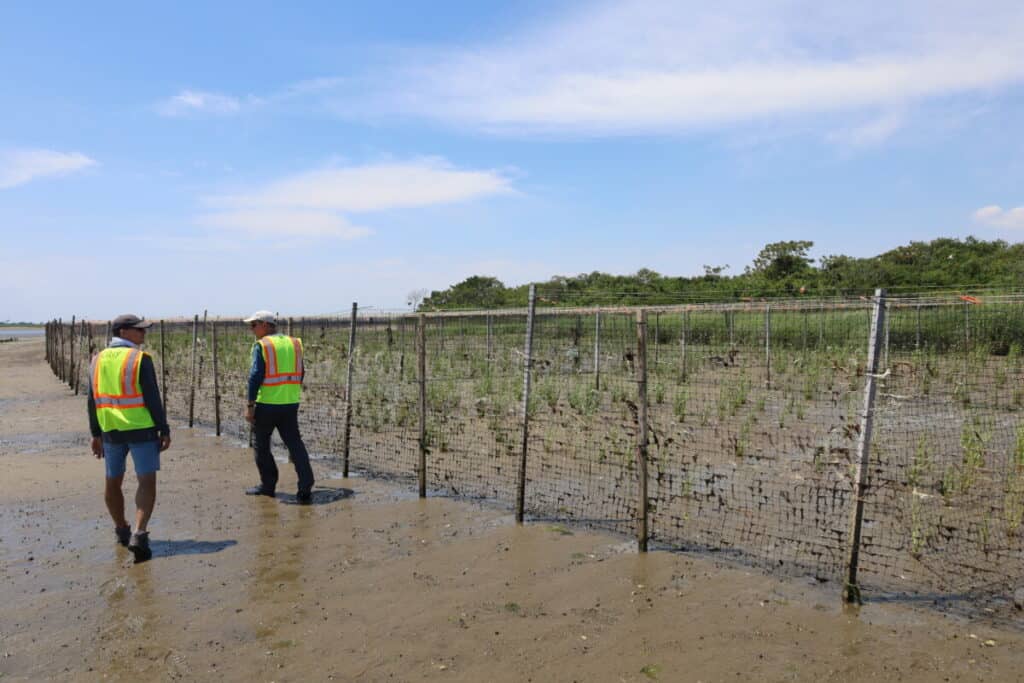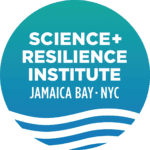
The Science and Resilience Institute at Jamaica Bay is thrilled to be hosting Dr. Jonathan Hallemeier, a visiting scholar at Brooklyn College who is an environmental social scientist and ORISE Postdoctoral Fellow working with the U.S. Army Corps and the Network for Engineering with Nature (N-EWN). Dr. Hallemeier received a PhD in Integrative Conservation and Anthropology from the University of Georgia where he conducted research on collaboration amid contention in national forest planning in the Southern Appalachians. This research emphasized the diverse relationships people have with their environments, the roots of environmental conflict, and the challenges and opportunities for collaboration across interests, values, and worldviews.
His current research focuses on Natural and Nature Based Features (NNBF), which are promising tools in efforts to enhance social and ecological resilience to threats, such as coastal flooding in neighborhoods around Jamaica Bay exacerbated by climate-driven sea level rise and weather events. Implementing NNBF remains a challenge, however. Besides the complexity faced by any infrastructure project, NNBF projects routinely occur at spatial scales that cross jurisdictions, involve dynamic ecological processes that present different uncertainties from traditional gray infrastructure, and fail to fit cleanly into established policies and budgeting categories. Implementing projects and expanding the use of NNBF requires navigating complexity, overcoming obstacles, and developing new institutional pathways. This work cannot be done by any actor alone. It needs networks to build knowledge, establish legitimacy, procure resources, and foster individual creativity to negotiate constraints and seize opportunities. Dr. Hallemeier is using anthropological and interdisciplinary approaches to investigate actors’ various roles in creating these collective action networks and in doing the work needed to pursue NNBF projects aimed at enhancing resilience to coastal flooding in Jamaica Bay.

“One of the major challenges to implementing NNBF in Jamaica Bay is the coordination required among all the various agencies, organizations, and communities that influence, or are influenced by, projects. Various groups and individuals must collaborate to bring together the funding, authorizations, knowledge, and other things that NNBF projects need, and this can be a difficult and complex task,” said Dr. Hallemeier.
Despite challenges, such as the complex social-ecological system and the dozens of federal, state, and local government entities that influence management of the bay, there have been numerous successes in implementing NNBF projects in Jamaica Bay. There is much to be learned from these examples. In his investigation of collective action in Jamaica Bay, Dr. Hallemeier is collaborating with colleagues at SRIJB, which plays a critical role in ongoing resilience-building efforts by bringing together diverse actors to develop knowledge and networks for decision making. He is drawing on SRIJB’s expertise and relationships to both research and contribute to the ongoing network and capacity building needed to face challenges of coastal resilience and adaptation in Jamaica Bay and beyond.
“Dr. Hallemeier’s research on barriers to advancing nature-based shoreline strategies in Jamaica Bay is timely and fills an important knowledge gap. The Institute looks forward to supporting this work as part of our growing portfolio of research and scholarship on nature-based solutions to the challenges of climate change and urbanization,” said SRIJB Executive Director Dr. Brett Branco.






